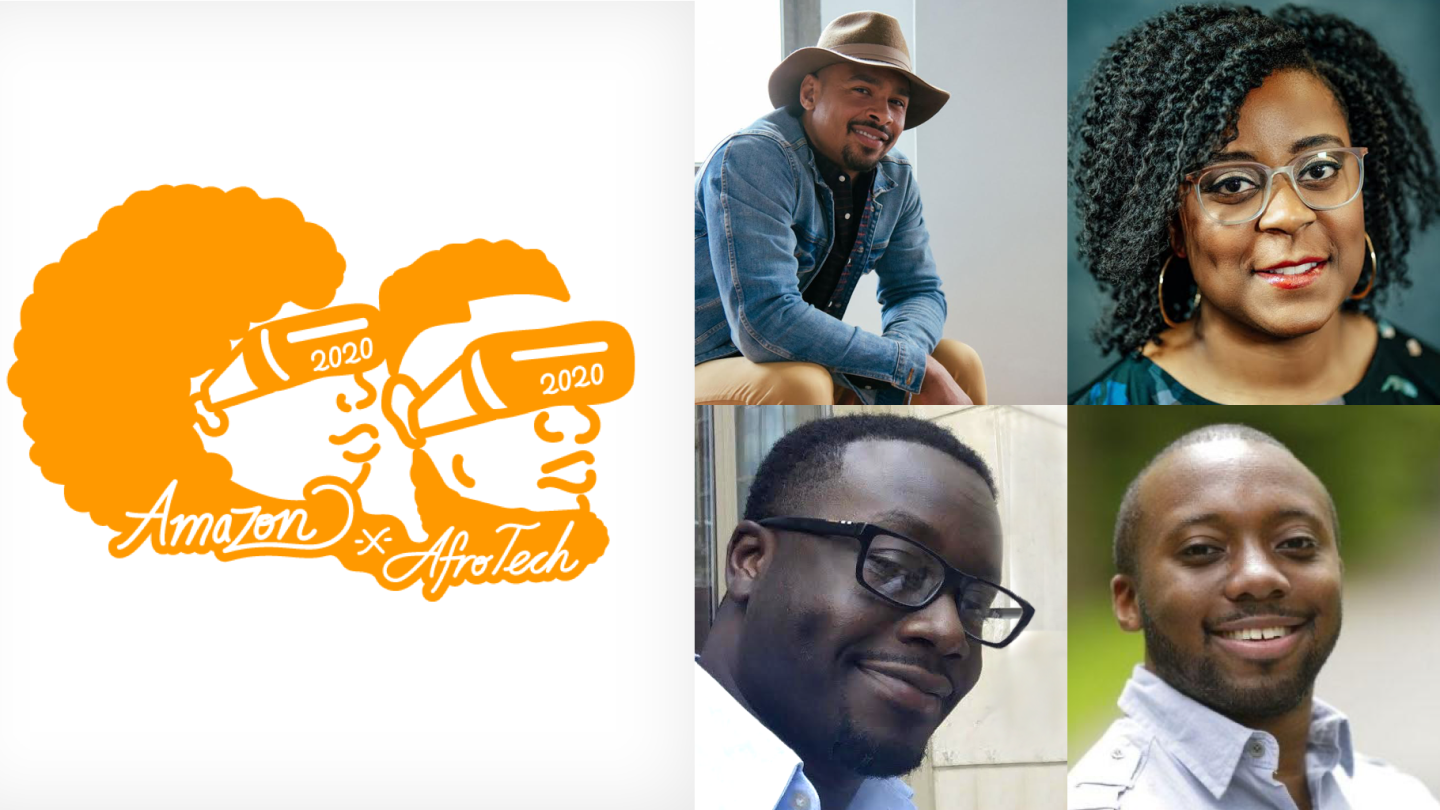As CNBC reported earlier this year, six years after initially disclosing diversity reports, major technology companies have made little progress in hiring more minorities, especially Black employees with science and technology skills.
This presents a series of ongoing challenges. According the US Bureau of Labor Statistics (BLS), nearly one-quarter of the country’s total economic output is produced by high-tech industries, and in 2017 BLS projected there would be more than 1 million job openings in computer and information technology over the next 10 years. Moreover, computing occupation salaries are more than twice the median wage for all other occupations, according to BLS.
“When we look at tech and its impact on our economy, and the simultaneous underrepresentation of the Black community, it is a critically important racial and economic justice issue," says Allison Scott, CEO of the Kapor Center. “When the tech workforce and leadership reflects the diverse experiences and backgrounds of our nation, I believe tech can begin to play an integral role in addressing long-standing disparities that exist in this country.”
As of December 31, 2019, Amazon reported that 26.5% of its global workforce identifies as Black/African American, 26.5% Asian, 18.5% Hispanic/Latinx, 1.3% as Native American, and 3.6% as two or more races. The 26.5% of employees who identify as Black/African American work in both non-technical and technical roles.
Meet Amazon at @AfroTech’s #AfroTechWorld this week!
— Amazon News (@amazonnews) November 11, 2020
Chat with recruiters in the virtual booth, and lookout for “We are Here: Debunking the Diverse Talent Pipeline Myth,” an event powered by Amazon’s Black Employee Network (BEN). #AmazonxAfroTechWorld https://t.co/SyLjGHdocj pic.twitter.com/Ac77uzgq7W
This week at AfroTech World, issues related to the lack of adequate racial, ethnic, and gender diversity within the technology industry are on the agenda as leaders in technology and business come together to exchange ideas for creating greater opportunity for Blacks in technology. Amazon is a Diamond Sponsor of this year’s event, and has a virtual recruiting booth.
On Nov. 13, the company is hosting a virtual event, “Our Voices, Our Power”, presented by Amazon’s Black Employee Network (BEN) affinity group. Attendees will hear employees share their Amazon journey stories, learn about career opportunities, and enjoy entertainment.
In advance of AfroTech, Amazon Science asked some of the company’s Black scientists what they consider some of the systemic issues limiting underrepresented minorities’ involvement in the technology industry, about some of the issues they have had to overcome in pursuing their science careers, who or what inspired them to pursue their science careers, and what lessons we might take from their individual experiences.
Dela Agbemabiese is a data scientist within Amazon’s advertising organization. He earned his master’s degree in business administration from Drexel University.

What do you consider some of the systemic issues limiting underrepresented minorities from greater employment opportunities in the technology industry?
Lack of financial resources to stimulate curiosity in tech, lack of mentors or heroes to look up to due to low representation, and societal prejudice hindering opportunities.
Lack of financial resources to stimulate curiosity in tech. I have been fortunate and blessed my entire life. All gratitude goes to my parents. I was born in Ghana, West Africa. My mom was a nurse, and my dad an economist. Due to the nature of my dad’s work, I got the opportunity to travel a lot as a kid, got enrolled into a course at eight years old to get a Linux command line certificate, and always had access to tech resources. My parents sacrificed to ensure I attended the best schools, and there is not a single thing I ever asked for that I did not get. This may not be the case for all children, whose parents are possibly working hard doing multiple jobs, and in some cases are single parents. If the financial resources I had were similar to that of many minority children, it would be unlikely for me to be where I am today.
"Students don’t see themselves represented in the [economics] profession"
Four economists from diverse backgrounds explain why diversity is essential—and what needs to happen to achieve it.
Lack of mentors or heroes to look up to due to low representation. While my dad was heavy on econometrics and I learned a thing or two from him, it was my cousin Martey to whom I looked up. He was brilliant academically, and I always wanted to be like him. He tutored me in math and physics, thus giving me an edge over my classmates. Martey was not my only mentor, in fact, I had many, including Yao Obeng, who helped me nurture my creativity and problem-solving skills. Many minority children may not have mentors or heroes within tech to encourage and inspire interest in tech-related careers. If I did not have these mentors to motivate me, it would be unlikely for me to be where I am today.
Societal prejudice hindering opportunities. Growing up in Ghana, prejudice did not exist from a racial standpoint. Once I moved to the United States for my undergraduate degree, this became a reality. My minority friends and I have had to work twice as hard as our peers to prove we are as good as our credentials. We strived to invalidate stereotypes about minorities through the quality of our work and our work ethic. With everything I do, in the back of my mind I am thinking about how my actions or inactions affect the perception towards minorities: am I enabling some of these unfounded prejudices? Or am I, through my work, educating my peers and superiors? For me, this societal prejudice only began when I came to the United States for my undergraduate degree, but imagine the minority children out there who have had to live with this their entire lives. It sure can get demoralizing.
Come find me at #AfroTech 2020! Let’s keep the magic going! Register for “We are Here: Debunking the Diverse Talent Pipeline Myth,” an event powered by Amazon’s Black Employee Network (BEN) on Friday, Nov 13, 4-6p.m. PST: https://t.co/00mWet1Hzl #AmazonxAfroTechWorld https://t.co/TwdDco6lm3
— Jamie Angell (@jamieelisea) November 11, 2020
What are some of the obstacles you had to overcome in pursuing your science career?
Societal prejudice hindering opportunities. I have been lucky to have managers and peers that are inclusive and open-minded, that judge me based on the quality of my work. Rachel McKitrick was my first manager in Amazon. I joined Amazon as a business analyst, despite my previous role as a senior data scientist. I just wanted to join Amazon! Rachel knew my business analyst role was not ideal, and gave me projects that were science oriented, which ultimately enabled my transition to scientist. My second manager, Monica Wu, always made herself available to chat and made me feel like my voice and opinion mattered. My current team managed by Dauwe Vercamer and Andrew Petschek welcomed me with open arms, gave me opportunities to shine and lead within the team. They provide direct feedback that has made me a much better scientist today.
I have had the privilege of learning from a lot of people. Societal prejudice may be harder to solve for, but I believe a good place to start will be to find means for minority youth to gain access to some of the brilliant minds within the technology industry, be it through some virtual teaching programs, or through some mentoring programs. The prejudice may exist, the financial resources may be sparse or non-existent, but with heroes and mentors to look up to, a child’s imagination can be sparked for what could be.
Who or what inspired you to pursue your science career, and what lessons can we take from your experience?
My dad due to his econometrics background, and my childhood mentors who encouraged me to put math and science ahead of basketball and soccer. Since then, I have had lots of mentors along the way, especially here at Amazon. Individuals such as Leo Razoumov, Pranjal Mallick, Amy Ruschak, John Lafayette, and Oded Netzer, who have helped shape me into a better scientist.
My advice to Black students interested in a STEM career, or other Black scientists is to find mentors, and get them involved in your work. Meet with them once a week for even 10 minutes, and let them influence your work.
Justin Barry is an applied scientist with Amazon’s Prime Video organization. He earned his master’s degree in computer science from the University of Central Florida.

What do you consider some of the systemic issues limiting underrepresented minorities from greater employment opportunities in the technology industry?
This is a massive topic with a myriad of associated socioeconomic issues. One issue that jumps to the forefront for me is the schools where leading companies within the tech industry recruit from. Traditionally, these companies have limited their recruitment to top universities where Blacks and other underrepresented minorities comprise a small percentage of the student population. This is beginning to change, but I believe technology companies need to more aggressively expand their recruitment efforts, especially among historically Black colleges and universities (HBCUs).
What are some of the obstacles you had to overcome in pursuing your science career?
One issue is imposter syndrome — the idea that you're not good enough and you’re only in your position because you’ve been given special treatment. Although imposter syndrome is something everyone experiences, I think it’s particularly acute for Blacks given the clear underrepresentation within the technology industry. Imposter syndrome can touch all aspects of your job if you’re unaware, or if you don’t have the tools to deal with it. Not everyone has the tools to deal with it, and I suspect not everyone has correctly identified the problem.
Who or what inspired you to pursue your science career, and what lessons can we take from your experience?
Video games sparked my interest in computer science, and more specifically artificial intelligence. My undergraduate degree is in computer science and math, and machine learning and AI provide the opportunity to apply my computer science and math skills to real-world applications.
Nashlie Sephus is an applied science manager within Amazon Web Services Ai. She earned her PhD in electrical and computer engineering from Georgia Tech.

What do you consider some of the systemic issues limiting underrepresented minorities from greater employment opportunities in the technology industry?
Imposter syndrome is one issue I find common within underrepresented minority groups. It’s a feeling of being convinced that you don’t belong in the industry, or within advanced roles in the industry, regardless of your accolades and accomplishments. It is as if they are not real or didn’t happen. This is often due to not seeing many others who look like you in similar or higher positions. ‘You can’t be what you can’t see’ is a common thought. Also, there are few mentors or support systems for these groups, and as a black/female/engineer/scientist, you sometimes feel like the minority of the minority, which further isolates you.
What are some of the obstacles you had to overcome in pursuing your science career?
At times, I have had to fight for myself and members of my teams for equal pay and advancement in my career. I also have needed to develop mechanisms to be heard when it was difficult to convey messages to those around me. I’m usually quiet and reserved, but over the years I’ve learned how to gain respect from peers by being more outspoken even, or especially, when I disagreed. This is one reason why I appreciate Amazon’s leadership principle: Have Backbone; Disagree and Commit.
Who or what inspired you to pursue your science career, and what lessons can we take from your experience?
I grew up in a house full of women where we often did our own chores, like fixing and repairing things around the house. I was also always going to summer math and science camps in elementary and middle school, especially a summer engineering camp for girls after my eighth grade science teacher recommended I attend. This was when I was first introduced to the various areas of engineering, and fell in love with computer science. Being able to control the hardware with software was fascinating to me. I knew then that’s what I wanted to do. This early exposure to science was key to me figuring out one of my passions, in addition to music and sports.
Colby Wise is a senior deep learning scientist and manager within the AWS Machine Learning Solutions Lab. He earned his master’s degree in computer science from the Columbia University Fu Foundation School of Engineering and Applied Sciences.

What do you consider some of the systemic issues limiting underrepresented minorities from greater employment opportunities in the technology industry?
Educational opportunity. Science, technology, engineering, and math (STEM) careers in the technology industry are highly competitive. Over the years, we’ve seen advanced tools and technologies like cloud technology, machine learning, and deep learning, that were once reserved only for large companies or prestigious universities being utilized by students as early as junior high school. While this has created and accelerated educational opportunities for millions of students globally, the reality is that not all have been able to benefit. In the United States, public school funding varies significantly by geography, and where you grow up is a major factor in access to educational resources. Schools with advanced STEM courses and other after-school programs are valuable inroads for STEM students to accelerate their learning opportunities and explore careers in science. What’s more, these opportunities compound positively from lower educational levels to higher educational levels. While not the only factor, these programs are important when understanding the pipeline of underrepresented minorities in highly competitive industries like technology. For example, the US Federal Reserve conducted a study highlighting how educational attainment of parents plays an important role in children’s educational pursuits. Studies like this and others indicate that lower parental educational attainment may present a unique challenge for students. One potential consequence of underrepresentation of minorities in advanced degrees is that employment opportunities often arise from one’s social network, employee referrals, for example. This can be summarized as both an employment funnel problem and a network problem. While not always the case, a more diverse workforce can build connections to underrepresented talent pools.
Financial equality. In a study from 2020, the US Federal Reserve found large and persistent gaps in net wealth and earnings by race and ethnicity. While education is a significant factor in wage gaps, the St. Louis Federal Reserve found net wealth by race was not as positively correlated with educational attainment for minorities. Educational attainment is extremely important. Many highly technical roles require advanced degrees. Financial equality and opportunity as characterized by job salary prospects, current income and net wealth, and access to educational funding sources like loans are all potential factors impacting lower minority employment. In 2016, the Brookings Institution found the median household net wealth for Black and Hispanic families to be 1/8th that of white households. When you consider the rising cost of college and advanced degrees, this income and net wealth gap may also play a factor in why employment among underrepresented minorities is lower in highly competitive industries like technology. Specifically, minorities whose households cannot readily pay for advanced degrees choose between the implications of high debt burdens and lower comparative earnings, and often must forsake advanced degrees to enter or stay in the workforce.
Amazon Alexa Fund is collaborating with Blavity to host a Start-up Showcase and fundraising programming at the annual AfroTech World. https://t.co/3JcpHZhLZ3
— ArianneW (@ArianneW) September 23, 2020
Leadership representation. Representation of minorities in leadership positions is relatively low. It is unclear how much educational opportunity and financial equality contribute to this, compared to other issues such as equitable pathways to senior leadership positions. In many companies in which I have worked, you notice a similar triangular pattern of minority leadership where representation at junior levels is more in-line with industry trends, while there is a dearth of representation as you reach more senior positions. No doubt there is work to be done to drive greater employment of underrepresented minorities at all levels. But simply increasing the representation at entry levels does not address other attrition and talent-retention hurdles. Overall, companies need to take a more systematic, data-driven approach to move the needle and find solutions to underrepresentation of minorities in the tech industry. For instance, companies should not be afraid to tackle the complex issues at multiple hierarchies, such as creating innovative solutions to drive educational opportunity while objectively measuring current pathways to employment within the tech industry. Furthermore, companies should ensure financial equality by aligning corporate incentives with fair pay distributions, minority leadership representation, and talent development and retention.
What are some of the obstacles you had to overcome in pursuing your science career?
Educational opportunity. While everyone’s path is different, unfortunately my story is rather common given its similarity to those of many underrepresented minorities. I faced and overcame obstacles in educational and financial opportunity plus roadblocks to leadership roles. I attribute my luck mainly to the many individuals who provided a helping hand, plus a little bit of hard work sprinkled in. I grew up in a single-parent household in an impoverished, high-crime inner-city area. Despite this, my family valued education highly, and one of my parents had an advanced degree which was extremely rare for the area. Given that, I always ranked in the top 1% in my coursework while very young. That said, district educational attainment rates were low, and advanced coursework or programs for gifted students were nonexistent. However, prior to high school an unfortunate family event led to me moving from one of the poorest areas in the country to one of the best school districts nationally. After discovering how far behind I was in math and science, my family and I worked extremely hard over several years to get me back in line with my expected academic grade level. Now fast-forwarding to college: I, like many other minorities, did not have the means to pay for college, nor easy access to loans. After being selected to a number of great schools, my decision was ultimately driven by the amount of money I received in scholarships and grants. During college I followed the same recipe for success: tons of luck, humility to ask for help, and a bit of hard work to land an internship as a sophomore at a prestigious Wall Street investment bank. There I was surrounded by some of the smartest minds in STEM, with many having achieved advanced degrees from top universities around the world. The vast majority of these individuals did not look like me. Desperately wanting to be accepted and succeed among my peers in industry is what drove me to pursue a career in science, and many years later brought me to AWS.
Who or what inspired you to pursue your science career, and what lessons can we take from your experience?
Family and friends. Ultimately, doing what you love and constantly learning while being curious is the greatest inspiration one needs to pursue a career in science. As discussed above, studies have shown a correlation between parental educational attainment and children’s attainment. Thinking forward a bit, I combined my passion for what I love in science — AI/ML — with a selfish goal of wanting to be a living model for a career in science for my children. My greatest inspiration, however, is my wife. She discovered her passion for science at a very young age with plentiful opportunities to explore that passion, ultimately helping her reach the pinnacles of academia, where she received undergraduate and graduate degrees from two of the top universities in the world. Her passion for science, hard work, and humility continue to inspire me on a daily basis.


















